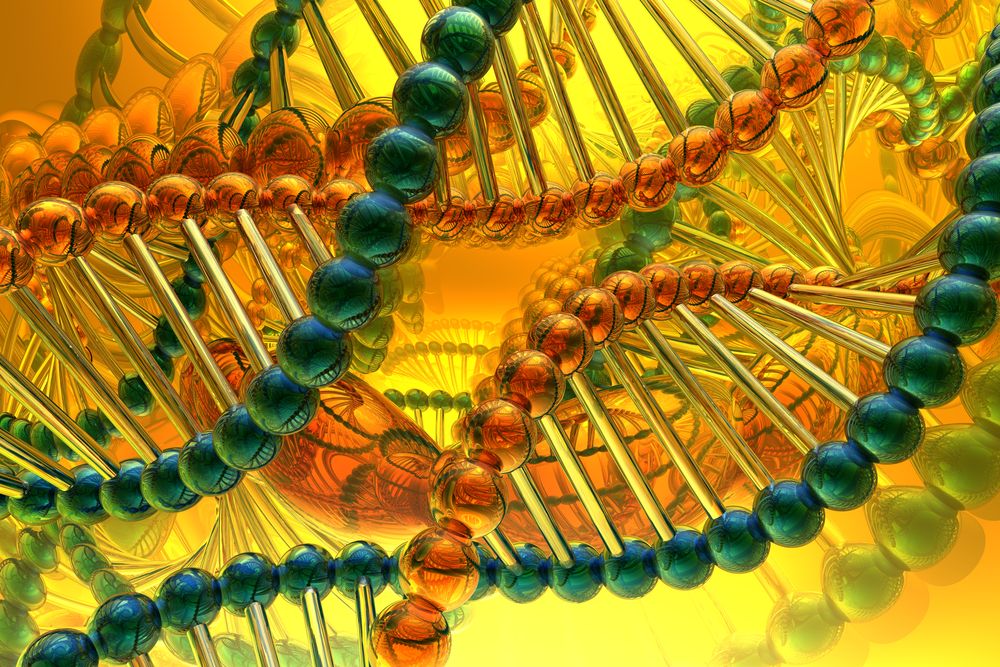Epigenetics is the study of heritable changes in gene function that do not involve changes to the underlying DNA sequence. It is the process by which gene expression is regulated by chemical modifications to the DNA or associated proteins, without altering the genetic code itself. These modifications can affect how genes are turned on or off, and they can be influenced by various environmental factors.
Here are some key aspects of epigenetics:
- DNA Methylation: This is the addition of a methyl group to the DNA molecule, typically at cytosine bases. DNA methylation can suppress gene expression by preventing the binding of transcription factors to the DNA.
- Histone Modification: DNA is wrapped around histone proteins, forming a structure called chromatin. Chemical modifications to histones, such as acetylation, methylation, and phosphorylation, can alter the structure of chromatin and influence gene expression by making the DNA more or less accessible to transcription machinery.
- Non-coding RNAs: Various types of non-coding RNAs, such as microRNAs (miRNAs) and long non-coding RNAs (lncRNAs), can regulate gene expression by interacting with messenger RNAs (mRNAs) or chromatin.
- Epigenetic Inheritance: While most epigenetic modifications are reset during the formation of gametes, some can be passed on to the next generation, affecting gene expression in offspring without changing the DNA sequence.
- Environmental Influences: Epigenetic changes can be influenced by a range of environmental factors, including diet, stress, exposure to toxins, and lifestyle choices. These factors can lead to changes in gene expression that may contribute to the development of diseases such as cancer, diabetes, and mental health disorders.
- Reversibility: Unlike genetic mutations, epigenetic changes are often reversible. This opens up potential therapeutic avenues for treating diseases by targeting epigenetic modifications.
Epigenetics is a rapidly evolving field that is enhancing our understanding of how genes are regulated and how various factors can influence health and disease across generations.
Epigenetic modifications are increasingly being explored as potential therapeutic targets for various diseases.
Here are some diseases that can potentially be treated using epigenetic modifications:
- Cancer: Many types of cancer are associated with abnormal epigenetic changes, such as DNA methylation and histone modifications, which can silence tumor suppressor genes or activate oncogenes. Epigenetic therapies, such as DNA methyltransferase inhibitors (e.g., azacitidine and decitabine) and histone deacetylase inhibitors (e.g., vorinostat and romidepsin), are being used to treat certain cancers, including acute myeloid leukemia (AML), myelodysplastic syndromes (MDS), and cutaneous T-cell lymphoma.
- Neurodegenerative Diseases: Epigenetic modifications play a role in the pathogenesis of neurodegenerative diseases like Alzheimer’s disease, Parkinson’s disease, and Huntington’s disease. Modulating these epigenetic changes could help in the development of new treatments. For example, histone deacetylase inhibitors are being investigated for their potential to enhance cognitive function and protect against neuronal loss.
- Cardiovascular Diseases: Epigenetic modifications are involved in the development of cardiovascular diseases, such as atherosclerosis, hypertension, and heart failure. Therapies targeting these modifications, like inhibitors of specific histone-modifying enzymes, could potentially prevent or treat these conditions.
- Diabetes and Metabolic Disorders: Epigenetic changes can influence the development of type 2 diabetes and other metabolic disorders by affecting gene expression related to insulin resistance and fat metabolism. Epigenetic therapies could help manage these conditions by restoring normal gene function.
- Inflammatory and Autoimmune Diseases: Diseases like rheumatoid arthritis, systemic lupus erythematosus, and inflammatory bowel disease have been linked to epigenetic alterations that affect immune system regulation. Targeting these alterations with epigenetic drugs could help in managing inflammation and autoimmunity.
- Psychiatric Disorders: Epigenetic mechanisms are implicated in the development of psychiatric disorders, such as depression, schizophrenia, and bipolar disorder. Epigenetic therapies might offer new ways to treat these conditions by regulating gene expression involved in brain function and behavior.
- Rare Genetic Disorders: Certain rare genetic disorders, such as Rett syndrome and Fragile X syndrome, are caused by mutations in genes that play a role in epigenetic regulation. Epigenetic therapies could potentially ameliorate symptoms by compensating for the dysfunctional gene regulation.
- Infectious Diseases: Some pathogens, like HIV and certain bacteria, can modify the host’s epigenome to evade the immune system or enhance their replication. Epigenetic therapies could help in combating these infections by reversing these modifications.
The development of epigenetic therapies is a promising area of research that offers potential new treatments for a wide range of diseases by specifically targeting the epigenetic mechanisms underlying these conditions.
Epigenetics represents a groundbreaking frontier in biological and medical science, providing profound insights into the regulation of gene expression and its implications for health and disease. Unlike genetic mutations, epigenetic modifications are reversible, offering unique opportunities for therapeutic interventions. The ability to modulate these modifications has opened new avenues for treating a wide array of conditions, from cancer and neurodegenerative diseases to metabolic disorders and psychiatric conditions. As research advances, the potential to develop targeted epigenetic therapies that can correct abnormal gene expression patterns holds promise for more precise and effective treatments. By unraveling the complexities of the epigenome, we move closer to personalized medicine, where interventions can be tailored to an individual’s specific epigenetic landscape, ultimately enhancing health outcomes and transforming the future of medical care.
READ MORE: 16 Foods That Can Lower Your Risk Of Cancer
Sources:
https://medlineplus.gov/genetics/understanding/howgeneswork/epigenome/#:~:text=%22Epi%2D%22means%20on%20or,sequence%20of%20DNA%20building%20blocks.
https://www.ncbi.nlm.nih.gov/pmc/articles/PMC1392256/
https://www.ejinme.com/article/S0953-6205(23)00193-0/fulltext#:~:text=Recent%20studies%20suggest%20epigenetics%20may,these%20diseases%20using%20epigenetic%20modulators.









